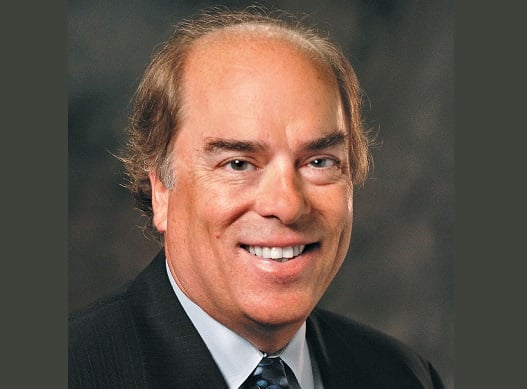Mike Zorn is the vice president of workplace strategy at WorkJam, a digital platform that enables HR to manage all aspects of their workforce from engagement and assessments to rewards and communication.
Zorn has more than 30 years of HR-related experience in the retail industry, including as SVP of associate and labour relations at Macy’s Inc., and he chairs the National Retail Federation's sub-committee on employment and human resources
Here, he shares why HR professionals need to keep learning and embrace technology to be part of the industry’s future.
If you could give your younger self, or someone entering HR for the first time, one piece of advice –what would it be?
I would tell myself to be open to new opportunities, be a constant student and explore the possibilities.
Is there anything exciting in the pipeline for your HR department?
What is critical right now is talent retention, which shows in our new and creative ideas to motivate and engage talent (other than compensation). From that comes creative ideas, as many organizations are exploring unlimited PTO, core hour work, horizontal development ideas and other new concepts.
What’s the biggest professional obstacle you – or your team – have faced and how did you overcome it?
For me, it was learning the value of core relationships. Being a results-driven person, I had to learn the importance of building trust with others and the approachability to share ideas and communicate transparently. The value of relationships is the glue that supports business impact.
What’s your biggest industry worry or concern right now?
Talent retention is a big concern, as many service industry organizations are concerned about building engaged and empowered workforces that create the new leaders of the future. The world is evolving faster than it ever has, and agile leaders that can manage and lead teams in this chaotic time will be a necessity.
If you could change anything about the HR industry, what would it be?
I think we have come a long way from the “personnel manager” focused on tasks to being a strategic talent and culture building leader. I still believe that we need to develop strong “predictive” metrics to help in the talent retention and culture building. How do we better anticipate what is needed rather than reacting to what has happened?
What is the proudest moment or achievement of your HR career so far?
My proudest moments are seeing those that I have mentored or worked with move on and be key leaders in the organization. Their success is the future of the organization.
What’s the most rewarding thing about being in HR?
You have an unlimited right to be involved in every aspect of the business, as long as you earn it by adding value to the business. As an HR leader, you have the opportunity with talent development, culture building and engagement to guide leaders to develop the underpinnings of a strong and vibrant team that has a significant impact on the business.
How do you predict the industry will change, if at all, over the next five years?
The emerging workforce will require HR leaders to be more results-driven, prove their value in retaining top talent – it will be a crisis situation at the leadership ranks if HR does not take a strategic point of view and develop cultural fit strategies to ensure that the right people are available to lead the organization. The only way to focus on this key strategic delivery is to remove the “tasks” of HR and embrace employee self-service through technology including digital workplaces and artificial intelligence.
What would you like your HR legacy to be?
I want to be remembered as having left the people and the places I engaged better for having known me and for the ideas that I stimulated them to have.
Related stories:
How to prevent employee burnout
How to cut hiring and retention costs

